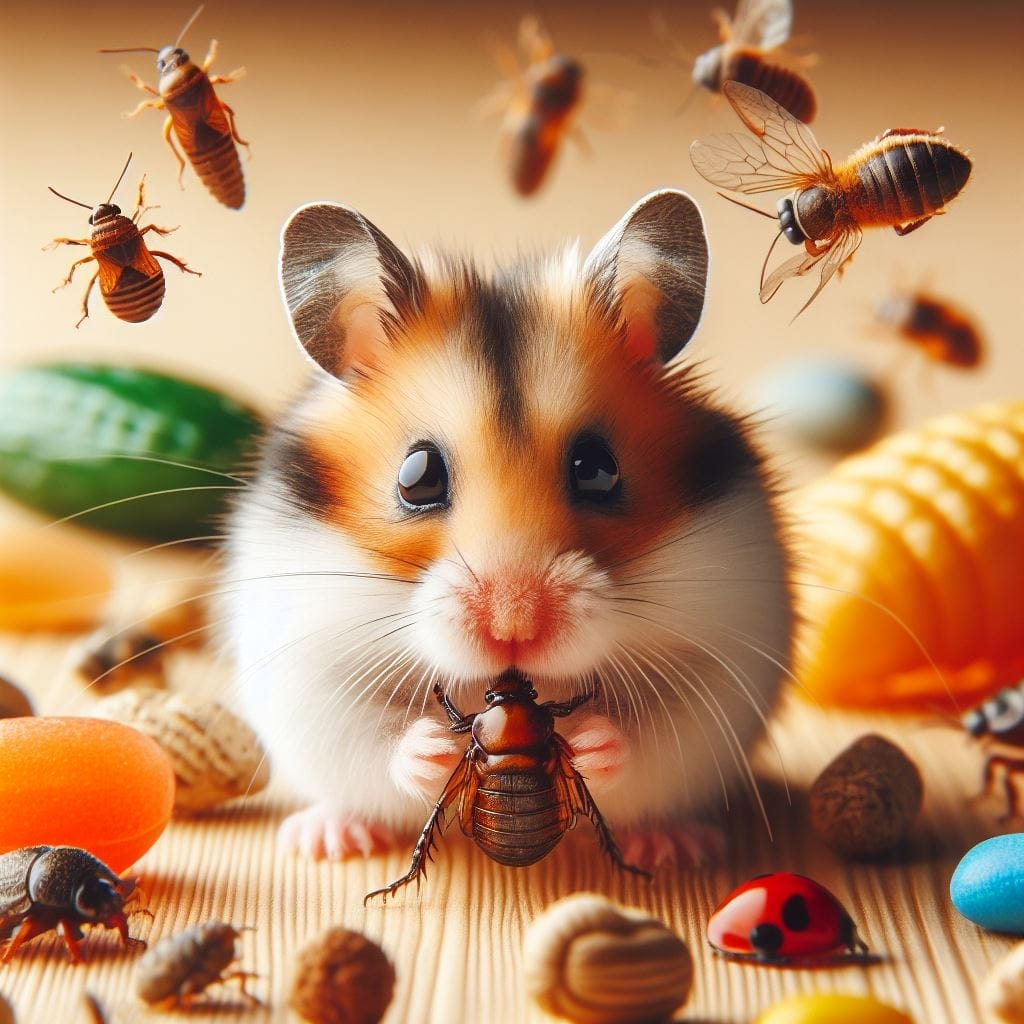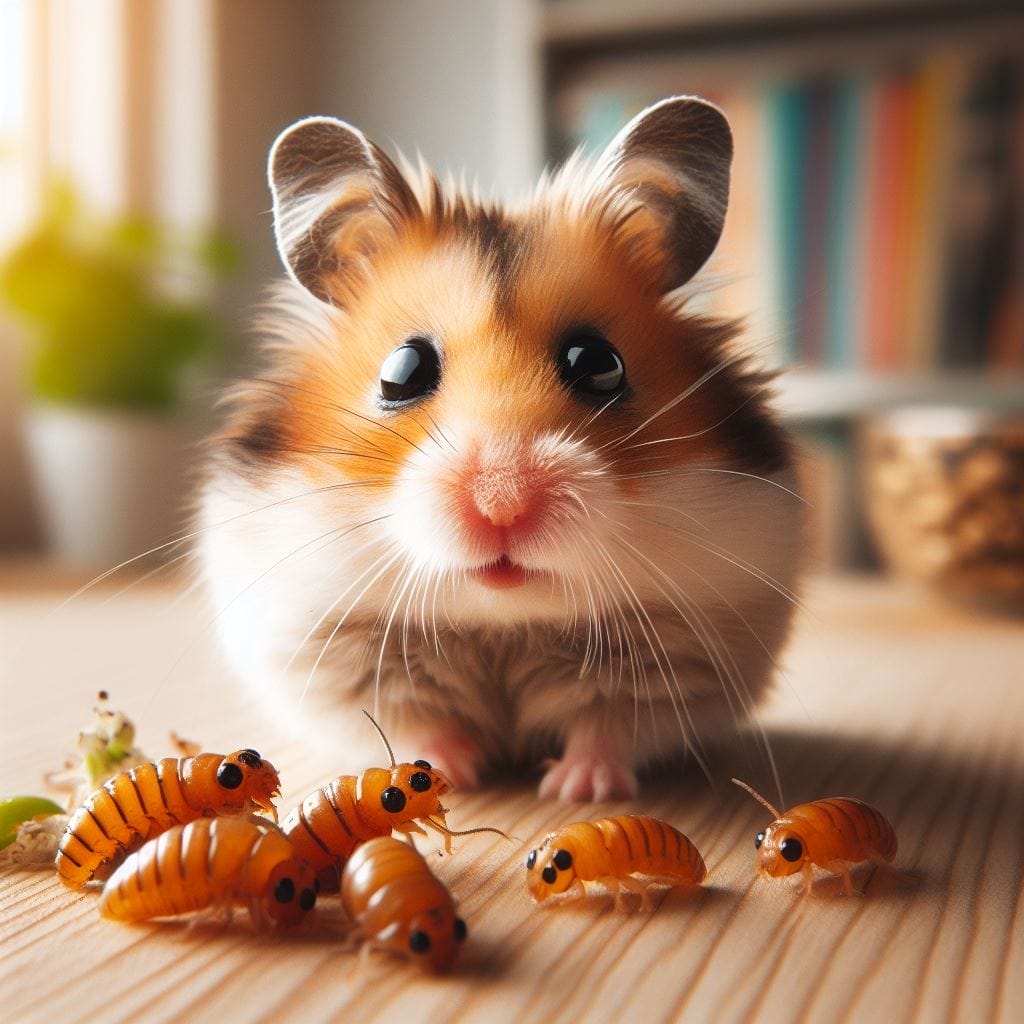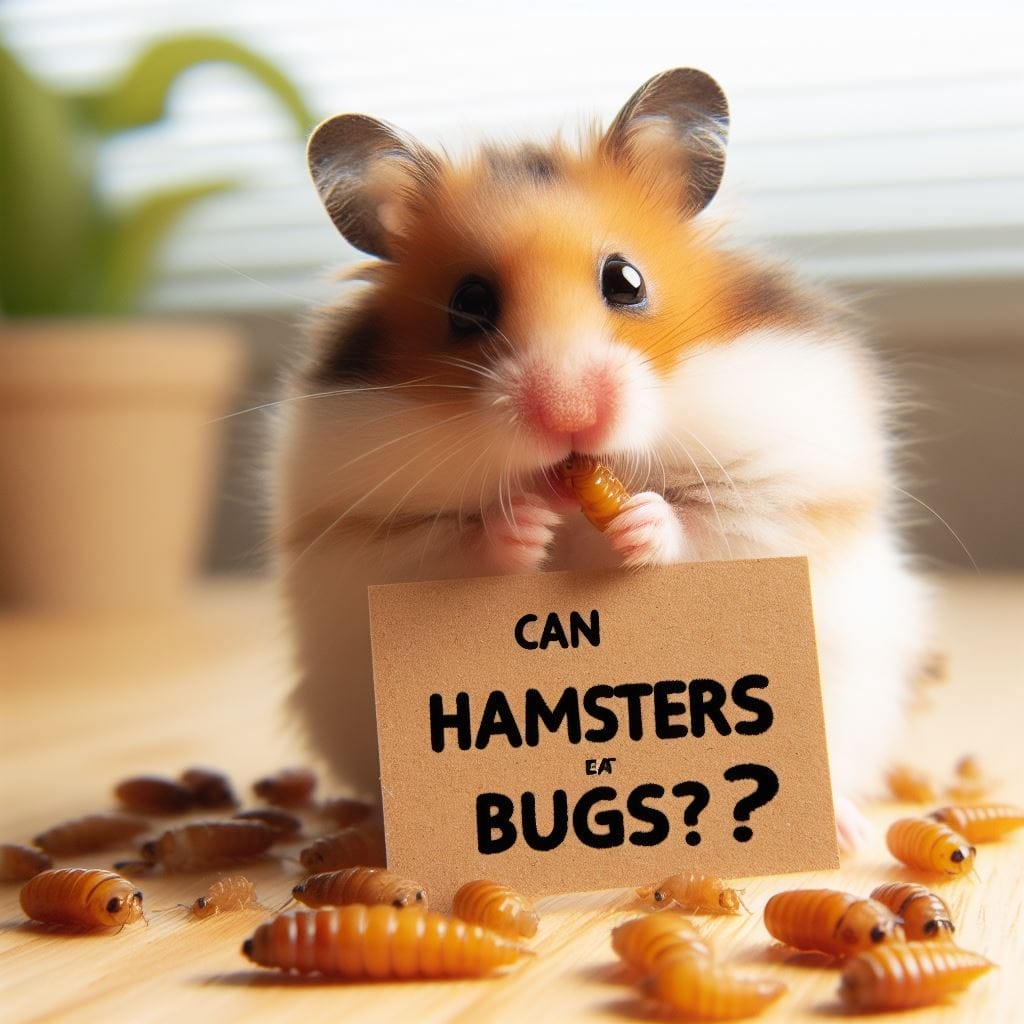Can hamsters eat bugs? This unconventional dietary option has sparked curiosity among pet owners, leading them to wonder about the potential implications of offering insects to their furry companions.
Introduce about Bugs
Can Hamsters Eat Bugs? Bugs, or insects, are a diverse group of invertebrate animals that come in various shapes, sizes, and species. Many insects are consumed as food sources by various animals and even humans in some cultures.
Nutritional composition in Bugs:
- Protein
- Fats
- Carbohydrates
- Vitamins (B12, riboflavin, and others)
- Minerals (iron, zinc, calcium)
Can hamsters eat Bugs?
Can Hamsters Eat Bugs? Yes, hamsters can eat bugs, but it’s essential to approach this dietary addition with caution and moderation. While bugs can be a source of protein and other nutrients, they should not be the primary component of a hamster’s diet.

Can Hamsters Eat Bugs? Hamsters are omnivores and can consume a small number of insects as part of a balanced diet. However, their digestive systems are not designed to process large quantities of insects, which can lead to potential health issues if consumed excessively.
Benefits of feeding Bugs to hamster
Incorporating bugs into a hamster’s diet in moderation can provide several potential benefits:
- Protein source: Insects are a good source of high-quality protein, which is essential for muscle development and growth in hamsters.
- Variety: Offering bugs can add variety to a hamster’s diet, preventing boredom and encouraging natural foraging behavior.
- Enrichment: Hunting and consuming insects can provide mental stimulation and enrichment for hamsters, mimicking their natural behaviors in the wild.
- Vitamins and minerals: Certain insects are rich in vitamins and minerals, such as B12, riboflavin, iron, and zinc, which can contribute to a balanced diet.
Risk of feeding Bugs to hamster
While bugs can be a nutritious addition to a hamster’s diet, there are potential risks associated with their consumption:
- Allergic reactions: Some hamsters may be allergic to certain types of insects, leading to digestive issues or skin irritations.
- Parasites and pathogens: Improperly sourced or handled insects may carry parasites, bacteria, or other pathogens that can harm hamsters.
- Chitin content: Insects have a high chitin content (a fibrous substance found in their exoskeletons), which can be difficult for hamsters to digest in large quantities.
- Pesticide residues: Insects from the wild may have been exposed to pesticides or other chemicals, which can be harmful if ingested by hamsters.
Can Hamsters Eat Bugs? If hamsters eat too many bugs, they may experience digestive issues, such as diarrhea, bloating, and abdominal discomfort. Excessive consumption can also lead to nutritional imbalances and potentially contribute to obesity or other health problems.

Symptoms of Bugs Poisoning in Hamsters
While bug poisoning is relatively rare in hamsters, it’s important to be aware of potential symptoms:
- Vomiting
- Diarrhea
- Loss of appetite
- Lethargy
- Dehydration
- Difficulty breathing (in severe cases)
If a hamster exhibits any of these symptoms after consuming bugs, it’s essential to seek veterinary attention immediately.
How much Bugs can you give a hamster?
Can Hamsters Eat Bugs? As a general guideline, bugs should make up no more than 5-10% of a hamster’s overall diet. A serving size of 1-2 small insects, such as crickets or mealworms, per week is generally considered safe for most adult hamsters.
It’s recommended to provide a balanced diet consisting primarily of high-quality hamster food, supplemented with fresh vegetables and occasional treats like bugs or other protein sources.

Alternatives and Supplements
- Mealworms (high in protein and easy to digest)
- Crickets (a good source of protein and calcium)
- Waxworms (high in fat, best as an occasional treat)
- Butterworms (a good source of protein and calcium)
- Soldier fly larvae (high in protein and calcium)
- Silkworms (a good source of protein and fiber)
- Grasshoppers (high in protein and low in fat)
- Ants (a good source of protein and fiber)
- Beetles (a good source of protein and minerals)
- Caterpillars (high in protein and low in fat)
Popular hamster food brands:
- Oxbow
- Kaytee
- Higgins
- Vitakraft
- Supreme Petfoods
Can Hamsters Eat Bugs?
Yes, hamsters can have bugs as an occasional treat, but they should be given in moderation and as a supplement to their regular diet.
“Should I have consultation with vet before feeding Bugs to my Hamster?”
It’s generally recommended to consult with a veterinarian before introducing new foods, including bugs, to your hamster’s diet.
“What are symtomps of Bugs Poisoning in hamster?”
Symptoms of bug poisoning in hamsters may include vomiting, diarrhea, loss of appetite, lethargy, dehydration, and difficulty breathing in severe cases.
“How to introduce Bugs to hamsters?”
Introduce bugs to your hamster gradually and in small amounts to monitor for any adverse reactions.
“Can Syrian hamsters eat Bugs?”
Yes, Syrian hamsters can eat bugs in moderation as an occasional treat.
“Can Roborovski hamsters eat Bugs?”
Yes, Roborovski hamsters can eat bugs in small amounts as a treat, but they should be limited due to their small size.
“Can Russian dwarf hamsters eat Bugs?”
Yes, Russian dwarf hamsters can eat bugs in moderation, but they should be given in limited quantities due to their small size.
“Can Teddy bear hamsters eat Bugs?”
Yes, Teddy bear hamsters can eat bugs in small amounts as an occasional treat.
“Can Chinese dwarf hamsters eat Bugs?”
Yes, Chinese dwarf hamsters can eat bugs in moderation, but they should be given in limited quantities due to their small size.
“Can Dwarf hamsters eat Bugs?”
Yes, dwarf hamsters, including Russian dwarfs and Chinese dwarfs, can eat bugs in small amounts as an occasional treat, but their intake should be limited due to their small size.
Can Hamsters Eat Bugs? If you take the time to educate yourself about hamster care and respect your pet’s personal space while also giving it adequate hamster breed, hamster food, exercise, and entertainment, as well as maintaining a clean environment and good health, you and your hamster should enjoy a long and happy life together. Visit our site http://hamstercare.net/
